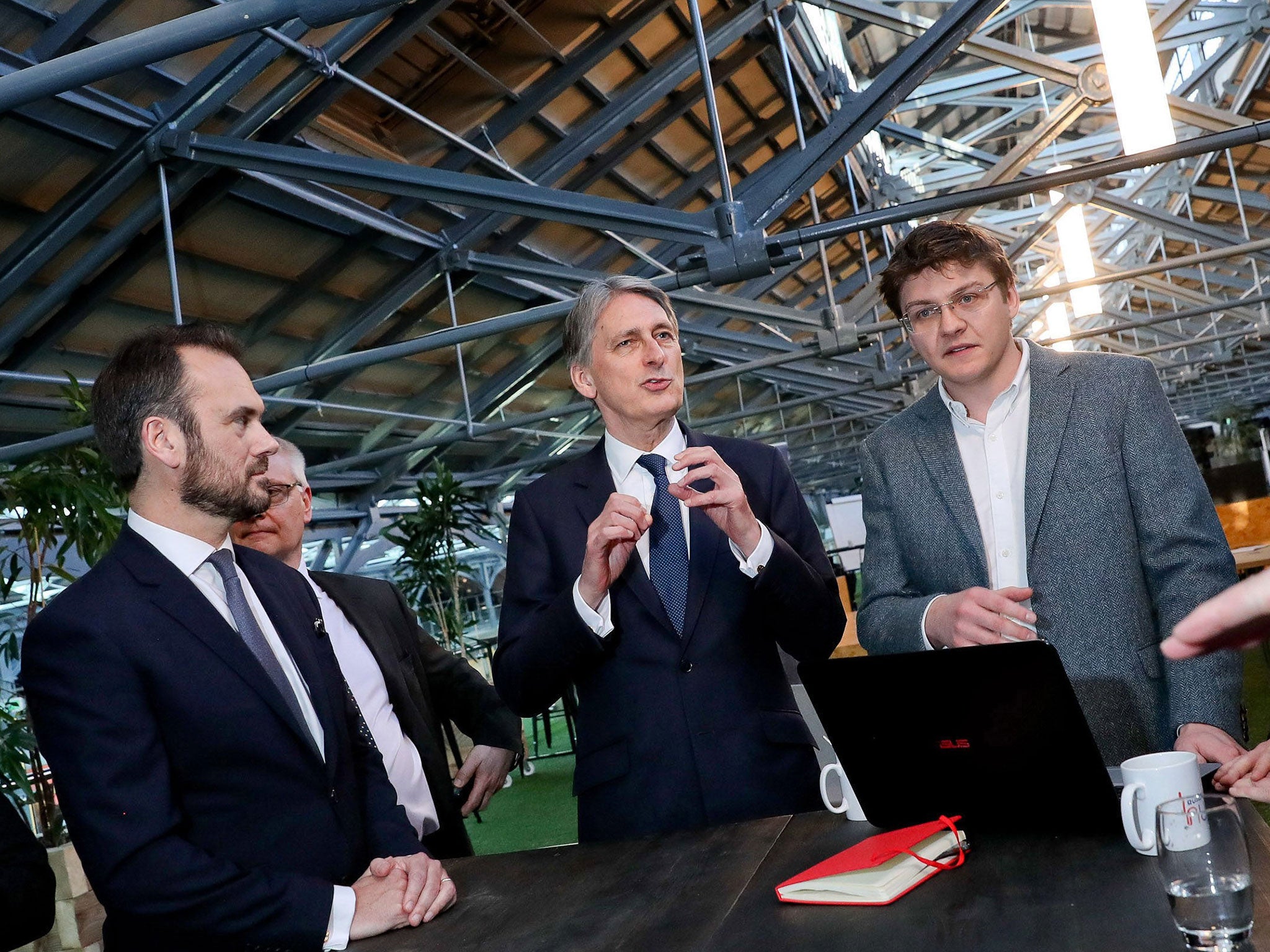UK could become 'tax haven' of Europe if it is shut out of single market after Brexit, Chancellor suggests
The country will do ‘whatever we have to do’ to keep economy afloat, says Philip Hammond

Your support helps us to tell the story
From reproductive rights to climate change to Big Tech, The Independent is on the ground when the story is developing. Whether it's investigating the financials of Elon Musk's pro-Trump PAC or producing our latest documentary, 'The A Word', which shines a light on the American women fighting for reproductive rights, we know how important it is to parse out the facts from the messaging.
At such a critical moment in US history, we need reporters on the ground. Your donation allows us to keep sending journalists to speak to both sides of the story.
The Independent is trusted by Americans across the entire political spectrum. And unlike many other quality news outlets, we choose not to lock Americans out of our reporting and analysis with paywalls. We believe quality journalism should be available to everyone, paid for by those who can afford it.
Your support makes all the difference.Britain is willing to rip up its economic model and become the tax haven of Europe if it is shut out of the EU’s single market, the Chancellor has suggested.
In a stark warning to the other 27 EU countries, Philip Hammond said the UK is willing to do “whatever we have to” to bounce back after Brexit.
The Chancellor gave a major interview on leaving the EU to the German newspaper Welt am Sonntag, just days before Theresa May was due to reveal her Brexit plans in a speech on Tuesday.
Mr Hammond admitted that if Britain leaves the EU and loses access to the European market, it could suffer “economic damage”.
And he adopted a bullish tone, stating that the UK may have to move away from a European-style system and cut corporation tax in order to “regain competitiveness” on the world stage.
When asked if the UK’s future model is that of a tax haven, he said: “I personally hope we will be able to remain in the mainstream of European economic and social thinking. But if we are forced to be something different, then we will have to become something different.
“If we have no access to the European market, if we are closed off, if Britain were to leave the European Union without an agreement on market access, then we could suffer from economic damage at least in the short-term.
“In this case, we could be forced to change our economic model and we will have to change our model to regain competitiveness.
“And you can be sure we will do whatever we have to do. The British people are not going to lie down and say, too bad, we’ve been wounded. We will change our model, and we will come back, and we will be competitively engaged.”
The Chancellor remains hopeful of agreeing a “new arrangement on a reciprocal basis” where it can trade with the remaining EU members on favourable terms without accepting freedom of movement.
But he indicated, as the Prime Minister has ahead of her Tuesday address, that the Government favours a hard Brexit approach which brings tougher immigration controls.
“We are aware that the message from the referendum is that we must control our immigration policy,” he told Welt am Sonntag. “At the moment, we don’t have any control, not any more than Germany does.
“That has to stop. That’s the message the British people sent on June 23rd.”
James Brokenshire, the Northern Ireland Secretary, was asked about Mr Hammond’s comments in an interview on the BBC’s Andrew Marr Show on Sunday morning.
He told Marr that he did not see Brexit as a “binary choice” between hard and soft options, but added: “We’ve certainly contemplated devolving corporation tax in Northern Ireland.
“The Prime Minister has always been very clear that she wants the UK to be an open, outward-looking trading nation,” he said. “We take a very stark message from the referendum that freedom of movement, as it exists today, cannot continue.”
In the Welt am Sonntag interview, Mr Hammond rejected the suggestion that Brexit came from a similar “strand of thinking” to the rise of Donald Trump – that the US and Britain were “turning their backs on the world”.
He said the UK had “never been a nation that was focused on continental Europe”, and rather than being “anti-trade”, Brexit campaigners wanted to “focus beyond that, to the wider world”.
Jeremy Corbyn, the Labour leader, told Marr that Mr Hammond “appeared to be making a threat” to EU leaders.
“It seems to me a recipe for some kind of trade war with Europe,” he said, suggesting the Government wanted to turn Britain into “a bargain basement on the shores of Europe”.
Join our commenting forum
Join thought-provoking conversations, follow other Independent readers and see their replies
Comments